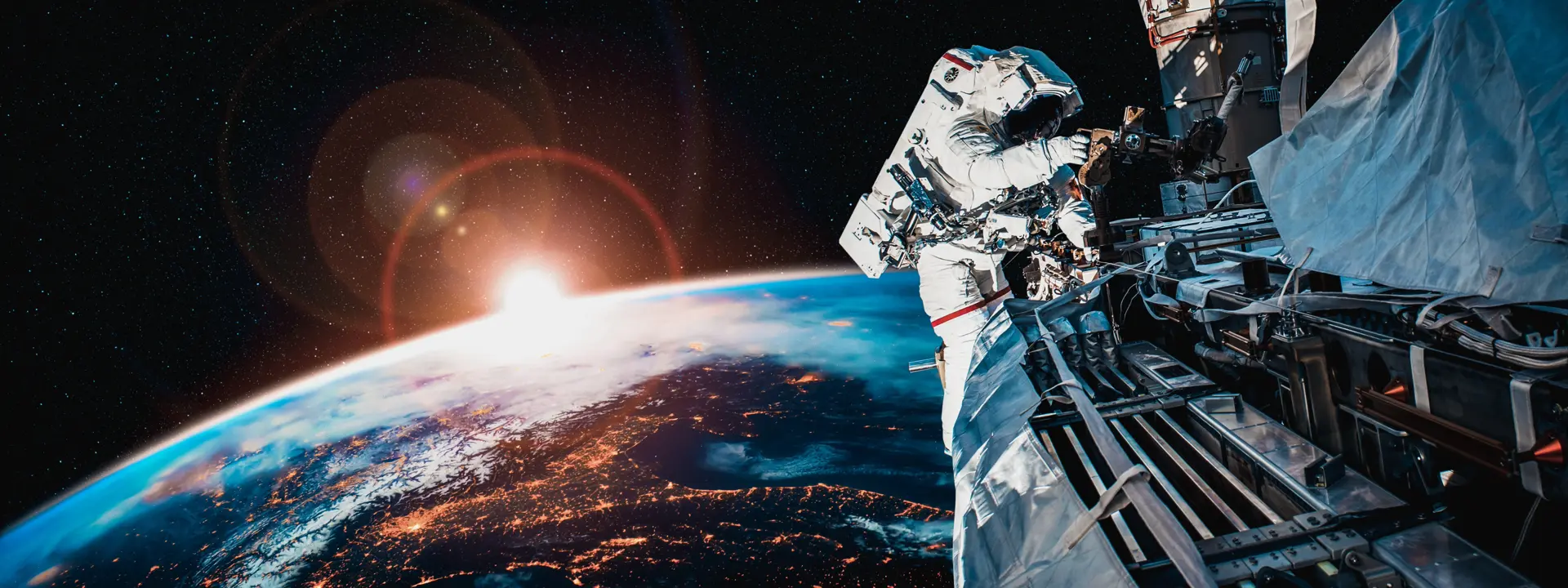ESA, NASA and beyond: How Heriot-Watt builds impact through space collaboration

This blog forms the final part of our three-part series with Associate Professor Ross Donaldson, exploring the growing space research landscape at Heriot-Watt University.
In part one, we introduced the broad and interdisciplinary nature of space-focused research at Heriot-Watt University. Part two explored global trends, future ambitions, and the university’s role in supporting sustainable space technologies. In this final instalment, we focus on the power of collaboration—examining how Heriot-Watt University partners with industry and international space agencies, and how events like the Niparo Sustainability Summit are helping to raise the university’s profile as a key player in the UK’s space sector.
How does Heriot-Watt University collaborate with other institutions or industry partners on space-related research?
“A lot of our work is at low Technology Readiness Levels—what we call TRLs. That means we’re focused on early-stage, fundamental research. Universities tend to lead lab-based experiments and initial demonstrations, and from there, we aim to work with companies to help transfer that knowledge into real-world applications.
This often happens through collaborative projects, Knowledge Transfer Partnerships (KTPs), or joint PhDs with industry. Some academics are also spinning out their technologies themselves. These different routes help bridge the gap between academic research and commercial implementation.”
What kind of collaboration does the university have with space agencies like the European Space Agency (ESA), NASA, or private companies?
"Our links are growing steadily. Initiatives like the Space Cluster Workshops have helped us bring people together and highlight our work. Some colleagues have had projects funded by ESA, but historically, that hasn’t been well-publicised. We're now trying to encourage more academics to engage with ESA—not just to access funding, but to help shape future technology roadmaps and policies.
We also have international links, including a collaboration I’m involved with at NASA’s Jet Propulsion Lab in California. We’re working with them to get access to some specialist detectors for our research at Heriot-Watt. It’s incredibly exciting.
In terms of private companies, many of our academics connect independently through networks, and we’ve had success with funding from Engineering and Physical Science Research Council (EPSRC), Innovate UK, and the UK Space Agency. It’s a thriving and growing area of collaboration.”
How do events, such as space conferences and workshops, contribute to the advancement of the space field?
“They’re absolutely essential. The space sector is evolving rapidly, and people change roles frequently, so keeping those networking opportunities frequent and regular is key. Conferences and exhibitions give us the chance to showcase our research and connect with new partners.
That’s one of the reasons we’ve been bringing more space events to Heriot-Watt. We want people to see the exciting work we’re doing and understand our capabilities first-hand.”
What impact do these events have on universities like Heriot-Watt in terms of research, networking and industry collaboration?
“Hosting events really shines a spotlight on Heriot-Watt. When people think about space in Scotland, they often mention Edinburgh, Glasgow, or Strathclyde. Heriot-Watt is sometimes seen as the quiet player in the background—but there’s a huge amount of capability and expertise here.
By bringing events like the Niparo Summit to campus, we raise awareness and increase visibility. It helps us make connections, attract collaborators, and ensure Heriot-Watt is recognised as a serious contributor to space research and innovation.”
This blog concludes our three-part series with Associate Professor Ross Donaldson. From foundational research to global partnerships and cutting-edge satellite technology, Heriot-Watt University is carving out a bold and collaborative future in the space sector.
Heriot-Watt University is at the forefront of global space research, bringing together world-leading expertise in quantum technologies, photonics, satellite communications, and aerospace engineering. From foundational science to real-world applications, our researchers are shaping the future of space exploration through innovation and collaboration.
To explore research partnerships, student opportunities, or upcoming space sector events, get in touch with us via GRID@hw.ac.uk.